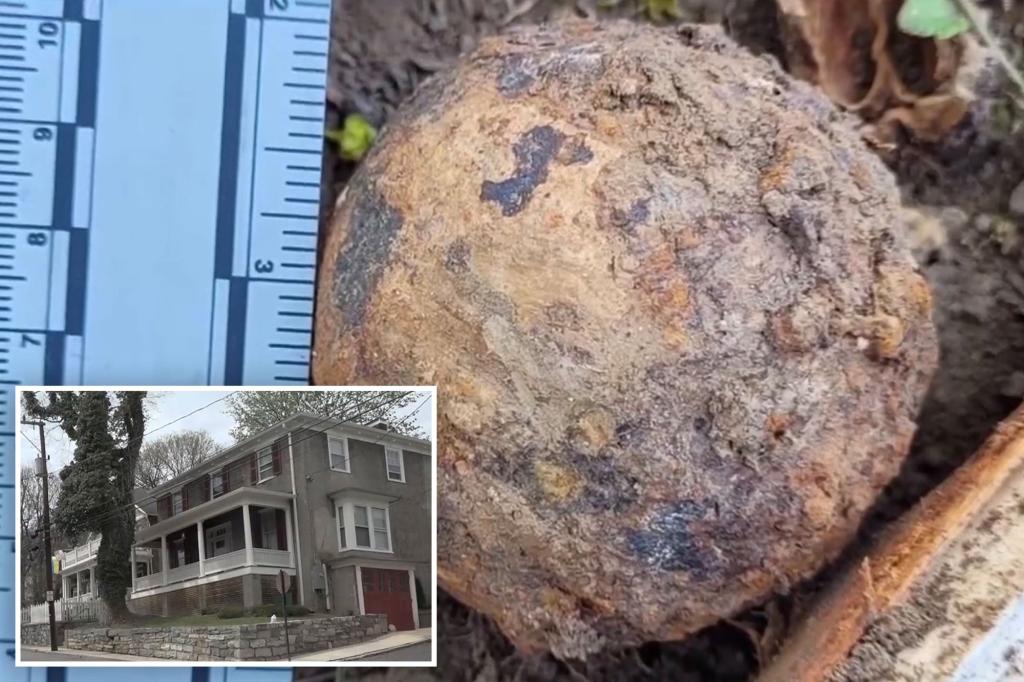Summarize this content to 2000 words in 6 paragraphs
Landscapers were blown away when they found a possible Civil War cannonball while working in the yard of a Virginia home.
The object — believed to be a rock at first — left real estate agent Jasin Singh in awe when one of the workers picked it up and cleaned it off.
“[It felt] way too heavy to be a rock and one of [the landscapers] ended up rinsing it off and we saw that it was a metal ball,” Singh told WHSV.
“And as soon as I saw that I thought ‘oh my God this is a cannonball.’”
It’s not the first time Singh has come face to face with a historical relic.
“I had something similar happen up in Front Royal and so I was more familiar with what to do. I’m thankful that I have [had] that experience,” Singh added.
Deputy Chief of Community Risk Reduction with Staunton Fire & Rescue, Perry Weller, told the broadcaster they were called to dispose of the object on April 8 the day it was discovered.
“We assumed it was a Civil War-era cannonball. Because [those] can be very unstable we treated it as if it was a live ordinance,” Weller said.
He warned others that if an unusual object like this was to turn up in their own backyards to leave it alone.
“Don’t pick it up, don’t toss it around, call us and we’ll get the proper authorities there to dispose of it,” Weller added.
Staunton, Virginia, was a key target in two major campaigns during the Civil War and remained strategically important through the entire war.
It had a population of about 4,000 people in 1860 and was a key transportation crossroads in the Shenandoah Valley.
The township was typically used by the Confederacy to protect infrastructure and wealth from Union forces.
Thomas J. “Stonewall” Jackson and Richard S. Ewell — both Confederate generals during the Civil War — used the town as their headquarters.
The region was used as an army depot, quartermaster and commissary post as well as a training camp during 1861 and 1865.
Union troops targeted Staunton for nearly two years before breaking the Confederates’ stronghold and laying waste to the town and miles of nearby railroad track.
For this reason, it’s no surprise that the historically significant community could be home to more Civil War paraphernalia, Weller said.
“In the last couple of years this is the second [cannonball] that I can recall that has been discovered and we have had to call the Virginia State Police to assist with,” Weller added.















